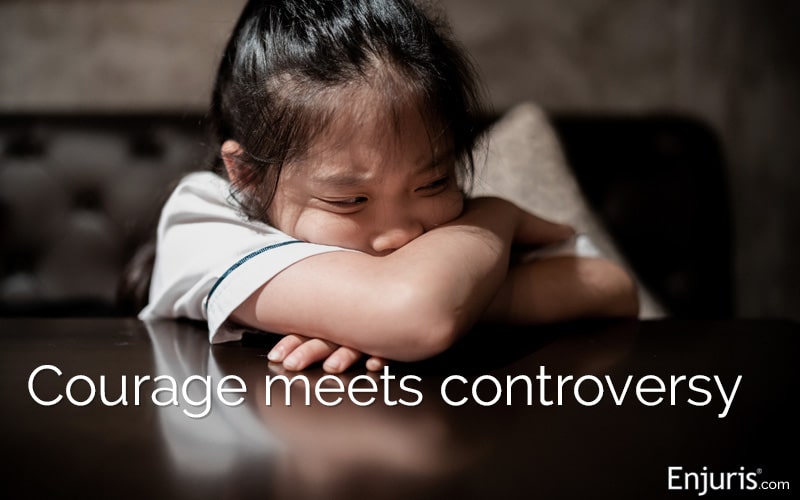
Imagine a little boy from the 1970s, a victim of childhood sexual abuse. The little boy grew up to be a strong man, bearing the weight of his past with remarkable bravery. He finally musters the courage to seek justice decades later, but in the state he calls home, Colorado, the doors to justice swiftly close.
On June 20, 2023, a landmark decision by the Colorado Supreme Court dismantled the hopes of countless victims like our hypothetical boy, seeking justice for long-ago atrocities.
Let’s take a closer look at the Colorado Supreme Court decision, keeping in mind the real people impacted by the decision.
The Child Sexual Abuse Accountability Act
The Child Sexual Abuse Accountability Act (“the Act”) became law in 2021. The Act created a statutory cause of action for a victim of sexual misconduct that occurred while the victim was a minor participating in a youth-related activity or program.
Importantly, the Act opened up a three-year window during which time a victim could file a lawsuit even if the statute of limitations had already run on their claim.
The law was part of a nationwide effort inspired by the #metoo movement to make it easier for victims to seek justice later in life after they’ve had time to process what happened. The Act provided a welcome opportunity for hundreds of survivors to pursue justice that they had long ago given up hope of pursuing.
According to the Colorado Department of Public Health and Environment, one in three people experience some form of sexual violence in their lifetime, 80 percent of which takes place prior to the age of 25.
The case of Angelica Saupe
The 2021 Act opened the door for Angelica Saupe to file a claim against Rangeview High School, where she was allegedly sexually abused by her basketball coach more than two decades ago.
Angela claimed that she was subject to escalating levels of sexual abuse and that the abuse was obvious to anyone paying attention.
Unfortunately, Angelica’s pursuit of justice was short-lived. A state court dismissed her claim on the basis that the Act was unconstitutional.
Angelica appealed the trial court’s ruling, and the case eventually made its way all the way to the Colorado Supreme Court.
The Colorado Supreme Court strikes down the Childhood Sexual Abuse Accountability Act
The main question before the Colorado Supreme Court was whether Colorado could pass a law that would revive a claim that is barred by the statute of limitations.
The Court answered the question in the negative, noting that “the retrospectivity clause of the Colorado Constitution prohibits retroactive legislation that creates a new obligation, imposes a new duty, or attaches a new disability with respect to past transactions or considerations.”
To put it simply, the Act was deemed unconstitutional, and Angelica’s claim was dismissed.
“The General Assembly can do many things,” explained the attorney for the Aurora public school district. “But what it can’t do is take the legislative priorities of 2022 and transport them back in time onto conduct that occurred during the final year of the Eisenhower administration.”
Statute of limitations for sexual abuse cases in Colorado
On April 4, 2021, Governor Jared Polis signed Senate Bill 73. Prior to the law, the statute of limitations to bring a civil claim based on sexual assault against a minor was 6 years.
However, the bill signed into law in 2021 eliminated the statute of limitations for any civil action based on sexual misconduct that occurred on or after January 1, 2022.
In addition, plaintiffs who were victims of sexual misconduct between January 1, 2016, and January 1, 2022, have an indefinite amount of time to file a lawsuit, provided the statute of limitations for the offenses has not already run.
It’s not always easy to understand whether you have a valid claim and whether the statute of limitations has run. It’s a good idea to meet with an experienced personal injury attorney to ensure you protect your rights and pursue all of your legal options.
$135 Million Verdict Rocks California: School District Held Liable in Abuse Case
Uncover the implications of the $135M verdict against a CA school district and how it affects institutional accountability.


